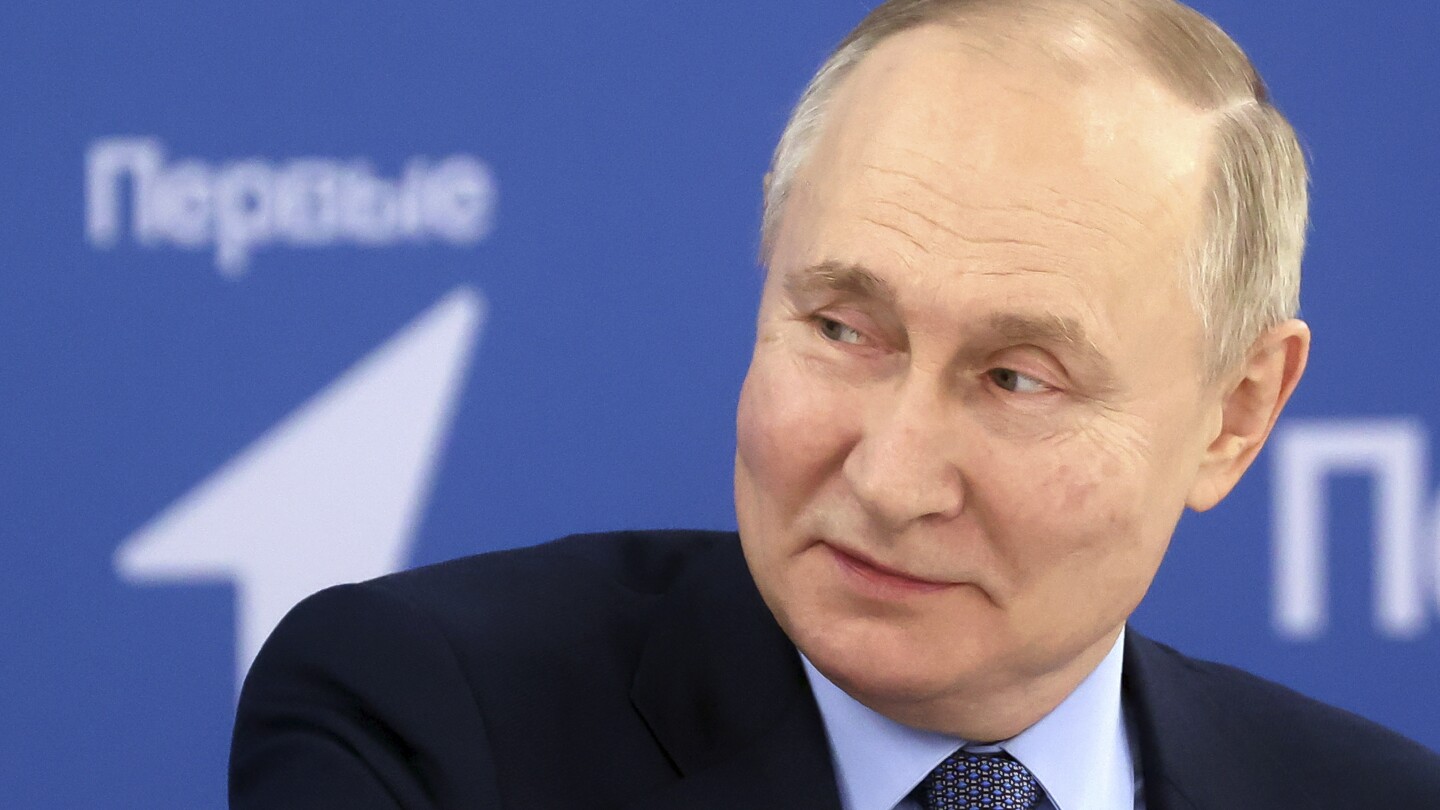DUBAI, United Arab Emirates (AP) — Russian President Vladimir Putin on Wednesday will visit both Saudi Arabia and the United Arab Emirates as Dubai hosts the United Nations’ COP28 climate talks — despite facing an arrest warrant from the International Criminal Court over the war in Ukraine.
Neither Saudi Arabia nor the UAE has signed the ICC founding treaty, meaning they don’t face any obligation to detain Putin over the warrant accusing him of being personally responsible for the abductions of children from Ukraine during his war on the country.
However, the visit comes as armed U.N. police patrol a portion of Dubai’s Expo City now considered international territory for the talks, again highlighting the Emirates’ expansive business ties to Russia that have exploded in the time since grinding Western sanctions have targeted Moscow.
A readout on Putin’s trip from the state-run Tass news agency published early Wednesday offered no suggestion Putin might come to the COP28 site, instead quoting Russian presidential aide Yury Ushakov saying he’d land and have a “meeting at the palace” and one-on-one talks with Emirati leader Sheikh Mohammed bin Zayed Al Nahyan.
The visit comes after COP28 saw a parade of Western leaders including U.S. Vice President Kamala Harris, French President Emmanuel Macron, British Prime Minister Rishi Sunak and others backing Ukraine speak at the summit. So did Belarusian President Aleksandr Lukashenko, long a Putin ally.
The U.N.’s Framework Convention on Climate Change, which oversees COP summits, did not immediately respond to a request for comment about Putin’s visit.
The Emirati organization committee for COP28 referred questions to the UAE’s Foreign Ministry, which did not immediately respond. The UAE repeatedly feted the now-deposed Sudanese leader Omar al-Bashir in the past despite an ICC warrant seeking his arrest over charges of genocide and crimes against humanity in Darfur.
Putin last visited the UAE in 2019, receiving a warm welcome from Sheikh Mohammed, then the crown prince of Abu Dhabi. In the time since, however, the world has greatly changed.
The Russian president isolated himself during the coronavirus pandemic. He launched an invasion targeting Ukraine in February 2022, a grinding war that continues on today and has been a topic for Ukrainian diplomats at the COP28 talks.
Meanwhile, the Israel-Hamas war remains a major concern for the Mideast, particularly the UAE, which reached a diplomatic recognition with Israel in 2020. Recent attacks by Yemen’s Iranian-backed Houthi rebels also threatens commercial shipping in the Red Sea as Iran’s nuclear program continues it rapid advances since the collapse of the 2016 nuclear deal.
Putin is scheduled to meet with Iranian President Ebrahim Raisi on Thursday for what Ushakov has described as “a rather lengthy conversation.” The two countries have been discussing ways to get around the Western sanctions targeting them.
Putin will travel onto Saudi Arabia and meet with powerful Crown Prince Mohammed bin Salman on the one-day trip, Ushakov said. Those discussions likely will focus on Moscow’s other major concern in the Middle East — oil.
Russia is part of OPEC+, which is a group of cartel members and other nations that have managed production to try and boost crude oil prices. Last week, the group expanded some output cuts into next year and brought up-and-coming oil supplier Brazil into the fold. Benchmark Brent crude traded Wednesday around $77 a barrel, down from nearly $100 in September, over concerns about a weakening economy worldwide.
___
Associated Press climate and environmental coverage receives support from several private foundations. See more about AP’s climate initiative here. The AP is solely responsible for all content.

